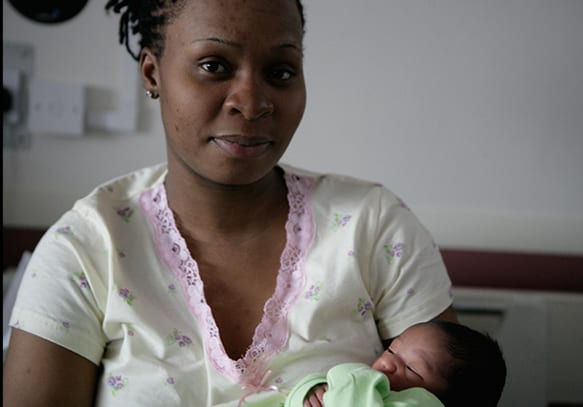Transcript – Baby blues and postnatal depression
This information is about low mood and depression following the birth of your baby. Between 3-5 days following the birth of the baby, many women get what is often called the ‘Baby Blues’. Due to the hormonal and chemical changes after your baby is born, it is normal to experience feeling ‘low’, mildly depressed or ‘flat’, following the birth. This can make you feel sad, irritable, touchy and anxious, and sometimes even lonely, but these feelings usually pass after a few days.
Having a newborn baby to care for whilst looking after yourself is overwhelming at times and this can negatively affect your mental health. It is important that if you feel that your mental health does not improve after a few days, gets worse or affects your bonding with your baby, that you seek help.
It can be difficult to open up to people when experiencing these feelings but getting additional support can make a huge difference to you. Your midwife, health visitor and GP are used to caring for women who feel this way and can support you and your family along with other support.
Postnatal depression effects around 1 in 10 women, occurring usually between 2-8 weeks after the birth, but sometimes it happens up to a year after the baby is born, lasting for weeks or potentially months. It can be caused by birth trauma (as can Post Traumatic Stress Disorder PTSD) and can cause difficulties adapting to motherhood or for no apparent reason at all.
If you, your partner, or your family feel that your mental health has been affected following childbirth, do not be afraid to ask for further support. By seeking support early, appropriate treatment can commence to improve your mental health and therefore the relationship developing between you and your baby.
There are many symptoms of postnatal depression, such as feelings of hopelessness, not being able to stop crying or control your emotions, loss of interest in or excessive anxiety about your baby.
The feeling of not being able to cope or able to enjoy things is common. You might lose your appetite, find it difficult to concentrate or sleep, and feel tired and generally unwell.
Women often feel distanced from their partners and feel alone. Remember, it is not a sign that you are a bad mother or unable to manage; it is an illness and you need help just as you would for a broken leg.
If you do feel like this, there is support available – talk to someone you trust, or to your Health visitor or GP. Many Health visitors are trained to recognise the signs and will help you through this difficult time or they will know someone in your area who can help.






